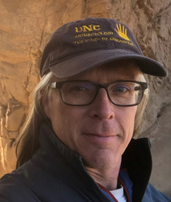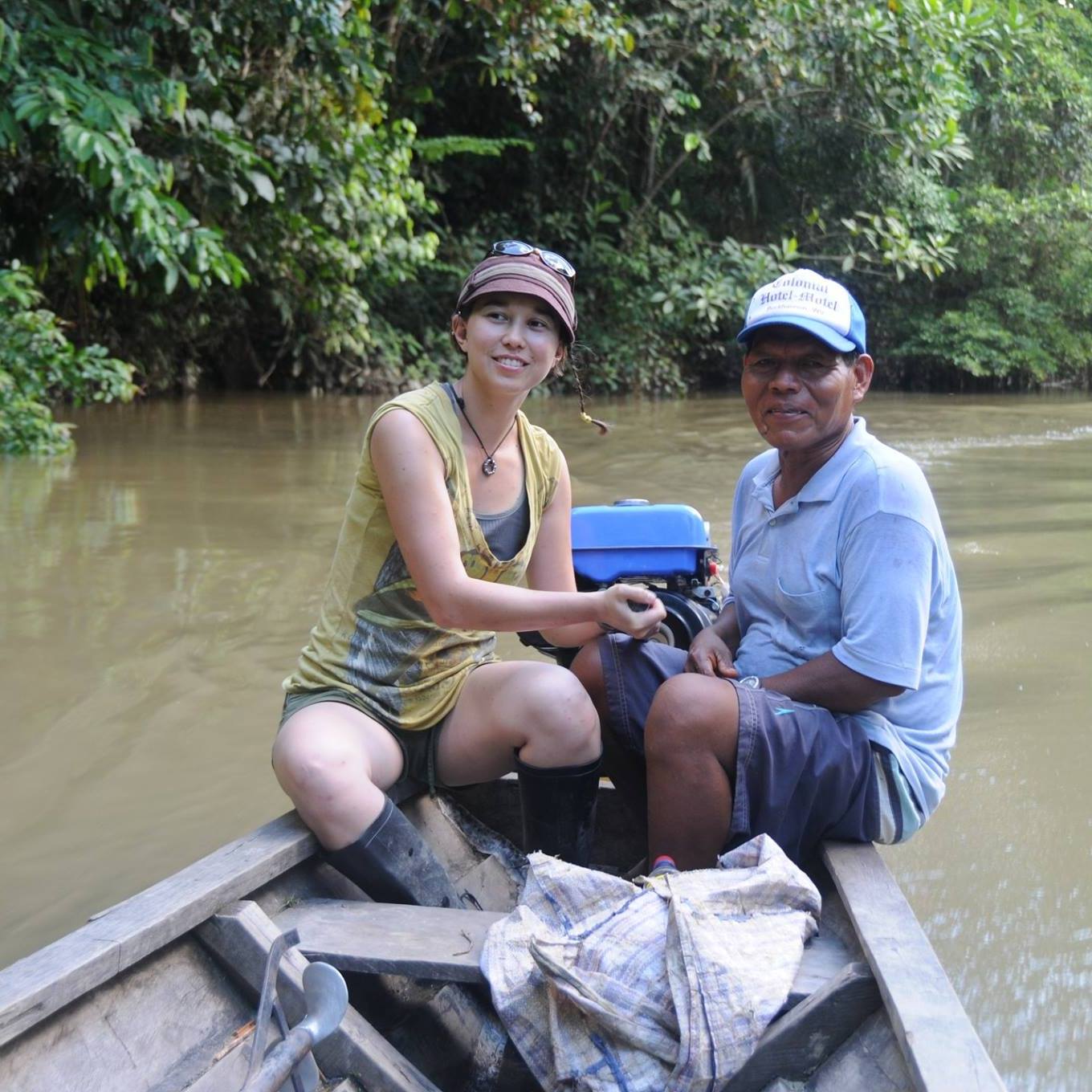AGES
Anthropology, Geosciences, and Environmental Sustainability
Students participating in career networking with local organizations
AGES is a collaboration between the Departments of Anthropology, Earth Sciences, and Geography, GIS, and Sustainability at UNC. Our faculty and students work together to provide hands on learning in our courses, research and outreach opportunities, and student support and development opportunities.
AGES Initiatives
High School Bridge Program
The High School Bridge Program brings local high school students to campus for activities related to anthropology, geosciences, and environmental sustainability. Focusing on students eligible for Federal TRIO programs who are often underserved and underrepresented in AGES programs, we work to support diverse groups joining AGES career pathways. Led by current undergraduate students serving as peer mentors, our high school group will learn AGES related science skills and practice college level work. At the end of our program,
People-Planet-Prosperity Fall Freshman Learning Cohort
This Learning Cohort is a group of 24 students who all sign up for the same 3 classes. This means you'll start college with folks who have a similar schedule and similar interests. Our team will also have extra advising, support, and fun events that fit into your schedules for the whole group to participate. This is a great way to make new friends, get connected, and work with dedicated faculty who are excited to help you and have you join our UNC community. The People-Planet-Prosperity Learning Cohort will give you an applied and integrated set of introductory courses with a cohort of your new peers! All incoming students from all majors are welcome to join our learning cohort. Together we will embark on a journey across the AGES (Anthropology, Geoscience, and Environmental Sustainability) while simultaneously completing three Liberal Arts Curriculum (LAC) requirements, which are the general education courses that every UNC student has to take as part of graduation requirements.
WHO CAN I TALK TO FOR MORE INFORMATION?
If you have questions about any AGES Initiatives, please feel free to email the AGES team at ages@unco.edu or contact one of our AGES advisors:
- Dr. Sharon Bywater-Reyes (Geology): Sharon.BywaterReyes@unco.edu
- Dr. Andy Creekmore (Anthropology): Andrew.Creekmore@unco.edu
- Dr. Chelsie Romulo (Environmental Studies): Chelsie.Romulo@unco.edu
Meet your AGES Advisors!

Sharon Bywater-Reyes, PhD
Dr. Sharon Bywater-Reyes in an environmental geoscientist who studies Earth’s surface processes, including rivers and hillslopes. One of her main lines of research investigates how vegetation influences river processes, including invasive species such as tamarisk and Russian olive. She works locally within river systems to evaluate river restoration and management projects and also on trail sustainability. She teaches general geology, hydrology, soils, and geomorphology within the Earth and Atmospheric Sciences program.

Andrew Creekmore, PhD
Andy is Professor and Chair of the Department of Anthropology at the University of Northern Colorado. He is an anthropological archaeologist, and his research focuses on the application of geophysics methods such as ground penetrating radar, magnetometry, and resistivity to the spatial organization of settlements, especially ancient cities in the Near East. The goal of this research is to understand how people organize themselves in urban space, how this changes over time, and what socio-political and economic factors contribute to the social construction of cities. Andy has conducted field work in Turkey, Israel, Palestine, Syria, Iraq, and U.S.A. He curates and manages the Anthropology Department collections and is co-leading UNC’s NAGPRA compliance and consultations with Native American Tribes.

Chelsie Romulo, PhD
Chelsie is a professor in Environmental and Sustainability Studies at the University of Northern Colorado. Her research spans several resource management
contexts, but consistently seeks to understand what works and why to explain what contextual characteristics result in impacts and outcomes. She uses
mixed methods approaches to integrate quantitative and qualitative data that can be
applied to many different management and policy situations and frequently make use
of existing data in new contexts. One aspect of her research interests delves into
evaluating enabling conditions for payments for ecosystem services programs using big data machine learning models. She is currently PI of an NSF IUSE grant using machine learning techniques as an assessment tool to understand how students
learn complex sustainability topics.

